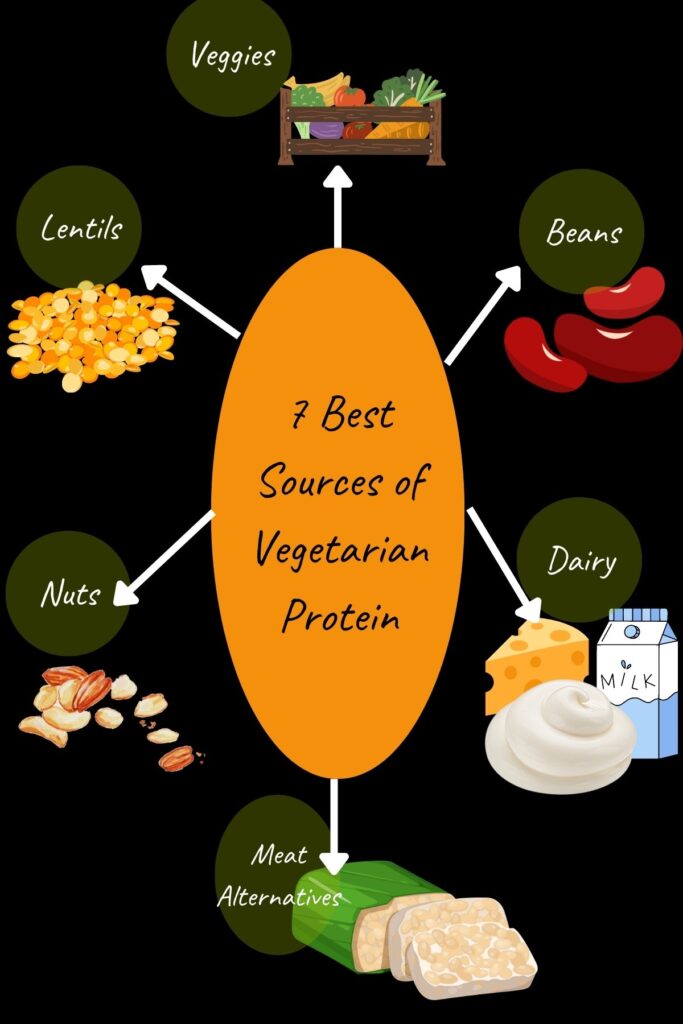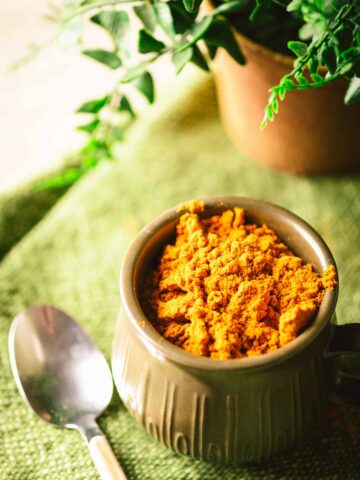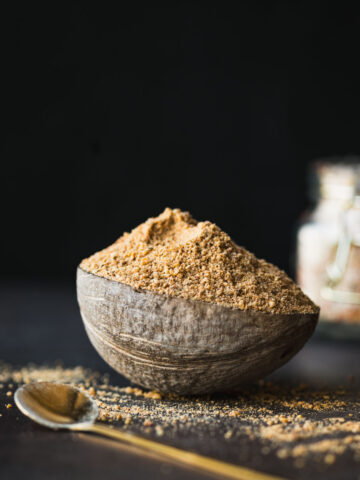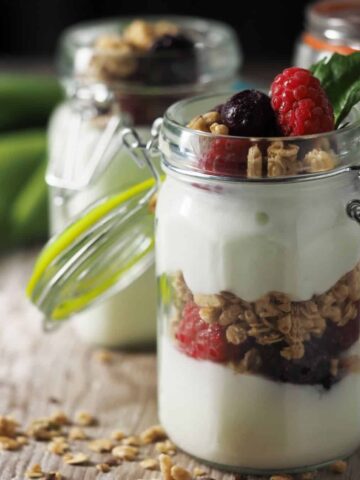Vegetarianism has become increasingly popular in recent years, with more and more people opting to eliminate meat and other animal products from their diets. While many may worry about getting enough protein on a vegetarian or plant based diet, there are plenty of vegetarian protein sources that can provide all the necessary amino acids. In this article, we will briefly discuss the 7 best vegetarian protein sources for anyone on a vegan diet and explore some of the best ways to ensure adequate intake.

The importance of Protein in a Vegetarian Diet
Protein is an essential macronutrient that plays a role in many bodily processes, and it's especially important for vegetarians since meat is one of the most abundant sources of protein. Fortunately, vegetarians can get their necessary amounts of protein from plant-based sources like legumes (chickpeas, lentils, etc.), grains (quinoa, oats, etc.), and nuts/seeds (hemp, chia seeds).
Proteins also provide essential amino acids, which are the nine amino acids that our bodies cannot produce on their own and must be obtained through food sources. By combining different vegetarian protein sources of food throughout the day, vegetarians can get all the essential amino acids they need for optimal health.
The challenges of obtaining adequate protein on a vegan or vegetarian diet
One of the primary challenges associated with adhering to a vegetarian or vegan diet is ensuring an adequate intake of protein rich foods. Vegetarian sources of protein typically lack one or more essential amino acids, meaning that combining different sources throughout the day is necessary to obtain all nine essential amino acids. Furthermore, some plant-based proteins are relatively low in protein content and may require larger portion sizes to meet daily protein requirements. Finally, proper preparation and cooking of certain plant proteins are required to maximize their bioavailability.
The health benefits of plant-based protein sources
Swapping animal protein for vegetarian protein sources offer numerous health benefits that make them an excellent choice for vegetarians and non-vegetarians alike. Here are some of the key health benefits of plant-based protein sources:
- Reduced risk of chronic diseases: Plant-based protein sources is packed with fiber, vitamins, minerals, and phytonutrients that can help reduce the risk of chronic diseases such as heart disease, type 2 diabetes, and certain types of cancer. By including these proteins in your diet, you can benefit from a reduced risk of developing these conditions.
- Lower saturated fat content: When compared to animal-based protein sources, plant-based proteins tend to have lower levels of saturated fat. This can help reduce cholesterol levels and decrease the risk of developing heart disease.
- Reduced inflammation: Plant-based proteins, such as nuts, seeds, and legumes, contain powerful anti-inflammatory compounds that can help reduce inflammation in the body. This can not only improve overall health but also help lower the risk of developing certain chronic diseases.
- Environmentally friendly: Eating plant-based proteins is a great way to help the environment. Plant-based sources generate fewer greenhouse gases, conserve natural resources, and promote sustainable farming practices - all of which are crucial for preserving our planet's health. Choosing plant-based protein sources can be an important part of reducing your ecological footprint.
Overall, including plant-based protein sources in your diet can provide numerous health benefits and help to maintain good health and well-being.
The importance of variety in a vegetarian diet
The key is to ensure that you are consuming a variety of vegetarian sources of proteins throughout the day to get all nine essential amino acids. Doing so will help you reap all the health benefits that vegetarian sources of protein have to offer.
By combining different plant-based proteins throughout the day, vegetarians can get all the essential amino acids they need for optimal health. Some great sources of vegetarian proteins include beans, lentils green peas, quinoa, nuts, and seeds. By including a variety of these foods in your diet regularly, you can ensure that your body is getting all the essential amino acids it needs to stay healthy.
The best vegetarian protein sources:
Here are some of the best high protein vegetarian foods that vegetarians can include in their diet:
- 1. Lentils: Lentils are an excellent source of protein, providing around 18 grams per cooked cup. They also contain fiber and numerous essential vitamins and minerals.
- Incorporating lentils into your diet can significantly improve digestive health, lower the risk of heart disease and stroke and reduce inflammation levels.
- 2. Beans: Different types of beans, including black beans, kidney beans, chickpeas or garbanzo beans, and pinto beans provide high amounts of protein. Bean dishes such as hummus or burritos can be a great way to incorporate them into your diet.
- 3. Whole grains: Including quinoa, brown rice, barley, and oats, whole grains are a great source of protein and complex carbohydrates, making them a filling and nutritious addition to meals. All of these grains can be used to create delicious meals such as salads, soups, stir-fries, pilafs, and stuffed vegetables. Quinoa is considered a complete protein source, providing all nine essential amino acids found in animal protein. Since quinoa is also gluten-free and rich in fiber, it’s often referred to as a “superfood”.
- 4. Nuts & Seeds: Nuts and seeds such as such as almonds, peanuts, cashews, chia seeds, and hemp seeds are packed with protein, healthy fats, vitamins, and minerals. They make a great snack as is or in the form of nut butters like peanut butter or almond butter. Nuts can also be added to salads, yogurts, or smoothies for an extra boost of nutrition.
- 5. Veggies: Vegetables such as spinach, broccoli, kale, asparagus, and Brussels sprouts are all good sources of protein. Other vegetables that contain protein include artichokes, mushrooms, peas, green beans, squash, sweet potatoes, and corn.
- 6. Dairy and dairy alternatives: Dairy products such as dairy milk, cheese, cottage cheese and greek yogurt, and dairy alternatives such as almond milk and soy milk, are good sources of protein, calcium, and other essential nutrients.
- 7. Meat substitutes: Meat substitutes such as tofu, tempeh, and seitan, are excellent sources of protein and can be used as a substitute for meat in many recipes. Seitan is a meat substitute made from Wheat gluten seasoned with salt and savory flavors.
Protein intake recommendations
To ensure optimal health, it is important to consume a sufficient amount of protein regularly. Generally speaking, the recommended daily allowance for protein intake is 0.8 grams per kilogram of body weight. Here is the breakdown of the protein intake recommendations for adults and children and based on gender based on the recommendations.
For adults:
- Adult males: 56-91 grams per day
- Adult females: 46-75 grams per day
- Pregnant and lactating females: 71-100 grams per day
For children:
- Infants (0-6 months): 9.1 grams per day
- Infants (7-12 months): 11 grams per day
- Children (1-3 years): 13 grams per day
- Children (4-8 years): 19 grams per day
- Boys (9-13 years): 34 grams per day
- Boys (14-18 years): 52 grams per day
- Girls (9-13 years): 34 grams per day
- Girls (14-18 years): 46 grams per day
Here is a list of food sources that are great sources of protein
| Food | Protein Content in grams | Serving Size |
| Chia Seeds | 4.7 | 1 oz |
| Sesame Seeds | 4.8 | 1 oz |
| Hemp Seeds | 10 | 3 tbsp |
| Peanuts | 7 | 35 peanuts or 1 oz |
| Cashew | 5 | 18 cashews or 1 oz |
| Almonds | 7 | 24 almonds or ¼ cup |
| Greek Yogurt | 17 | 6 oz |
| Milk | 8 | 8 oz cup |
| Cottage cheese | 12.5 | ½ cup |
| Cooked lentils | 18 | 1 cup |
| Cooked quinoa | 18 | 1 cup |
| Tempeh | 31 | 1 cup |
| Tofu | 20 | 1 cup |
| Edamame | 17 | 1 cup |
| chickpeas (garbanzo beans) | 15 | 1 cup |
| Green Peas | 8 | 1 cup |
| Spinach | 5 | 1 cup cooked |
| Broccoli | 4 | 1 cup cooked |
| Brussel Sprouts | 4 | 1 cup cooked |
| Asparagus | 4 | 1 cup cooked |
| Artichoke | 4 | 1 cup cooked |
Eggs can be a source of debate within the vegetarian community. While some vegetarians choose to include eggs as part of their diet, others do not. From a technical perspective, eggs are considered to be non-vegetarian because they come from animal reproduction. However, some vegetarians still choose to consume them due to the fact that they do not involve killing an animal. Ultimately, deciding whether or not one should eat eggs is based on personal beliefs and preferences when it comes to what foods are acceptable on a vegetarian diet.
Eggs are an excellent source of protein. One large egg contains approximately 6 grams of protein, making it a convenient and affordable source of high-quality protein. The protein in eggs is considered a complete protein, meaning it contains all the essential amino acids needed by the body.
Additionally, eggs are a rich source of other essential nutrients such as choline, vitamin B12, and vitamin D. While eggs are not suitable for vegans, they can be a healthy and nutritious addition to vegetarians who choose to include eggs in their diet.
Protein powders can be a great way to increase protein intake, especially for individuals who may have difficulty meeting their protein needs through whole food sources alone. They're also ideal for athletes or individuals engaged in intense physical activity, as they can aid in muscle recovery and repair.
It's important to remember that protein powders should not be used as a replacement for complete nutrition from whole food sources. It's best to strive for getting the majority of your protein from nutritious and natural food sources. When you do opt for plant-based protein powder, make sure to choose high quality products with minimal added ingredients like sugar and artificial flavoring. Doing so will ensure you get the most out of your protein powder and can enjoy all the health benefits.
Whether or not to include protein powders in your diet is an individual choice, and it's best to discuss the decision with a professional or registered dietitian who can help assess personal health goals and dietary needs This will ensure that you make a well-informed decision that aligns with your overall nutritional requirements.
No, soy does not contain any estrogen or hormones. The only foods that do contain hormones that can negatively affect human hormone levels are meat, dairy, and eggs since they come from animals that have hormones in their bodies just like humans do. Eating a balanced and varied diet with plenty of nutritious plant-based proteins is the best way to ensure a healthy body and balanced hormones.





Comments
No Comments